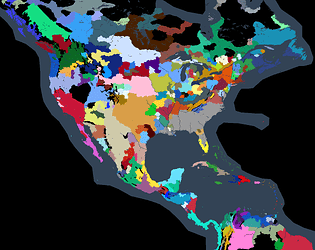Chapter 12 - 2706 State of the World
Things have greatly changed since the time of King Pollock the Ram, not just for California, but for the rest of the world as well.

Under Emperor Thao I, the Empire of California is more united and powerful than it has been since Elton the Lawgiver first created it. The emperor still remains as hale and hearty as he was when he first claimed the throne, promising to rule for many more years to come.

Gran Francisco continues to be a land of instability; King Walter the Wise is back on the throne, after yet another coup. The once great kingdom has fallen far from its place as the jewel of California, since the loss of Goldengate.

Meanwhile, Jefferson continues to prosper under King Stanford III; a bulwark of stability, Jefferson guards California from the north, stopping any number of Gaian raiders from reaching Sacramento.

To the south is the impoverished Kingdom of Baja; currently ruled by the child king Baltasar III, its survival relies on the goodwill of Emperor Thao I. It is unclear how much longer this goodwill will last.

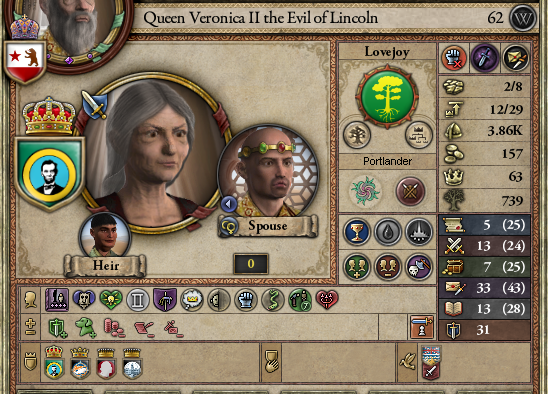
To the north of California two great realms are slowly emerging under the Gaians: the Kingdom of Cascadia and the Kingdom of Lincoln. While not currently a threat to California, should they ever manage to find common ground, they could easily force their way into Sacramento. Thankfully, Queen Penny I and Queen Veronica II hate each other, claiming that their “signs” are natural born enemies; whatever that means, it is apparent that no grand Gaian alliance will materialize while they rule.

North of the two Gaian kingdoms is the Kingdom of Januug Tlagaang; based out of Vancouver, the people of Januug Tlagaang are feared in California for their raiding prowess. The current king, Tahaygen the Tenacious, is, by their standards, a kind and temperate man; this has not stopped their frequent raids on the Californian coast, but it has made them less violent.


Across the Great Basin Desert lies the realm of the Mormons, Deseret. While outwardly it projects an image of a strong realm, in reality it is one in decline. Under High Judge Verril, not only did the Children of Zion fail to secure Socal, but they have lost ground to the tribals of Gadsen under Manuelito. While still possible for the Mormons to recover, it is growing increasingly unlikely they will.
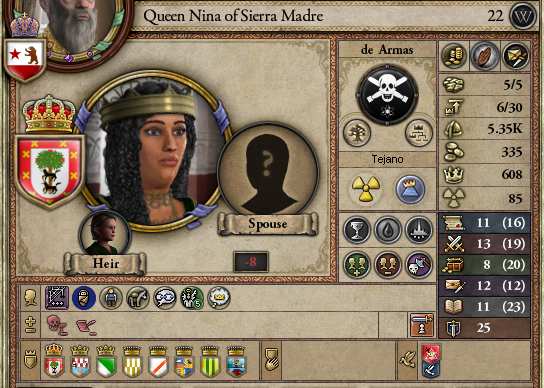

For the longest time, the American Great Plains were dominated by the Catholic Kingdom of Comancheria, but in recent years the Atomicists of Sierra Madre have begun expanding into the area from Mexico. Now King Pahayoko II must deal with the up-and-coming Queen Nina I if he hopes to protect his realm from the Old World Cultists of Mexico.

Complicating matters for King Pahayoko II are the nomads of Kickatus to his north; fierce raiders and horselords, Sheriff Galen III has made it his purpose in life to destroy Camancheria.


In the Mid-East, the Kingdoms of Iowa and Chicagoland do what they can to protect Catholics and other Christians from the Old World pagans of Wisconsin, Michigan, and Minnesota. Queen Jilly I, crusader who was given the crown of Chicagoland, acts somewhat as a mentor and teacher for the young Queen Emma and the two kingdoms enjoy an alliance with each other.

The biggest threat to Christianity in the Mid-East is the Jarldom of the Twin Cities; having conquered most of Michigan and Wisconsin, Jarl Ollrod I has set his eyes on conquering Iowa and Chicagoland.

In Ohio, Consumerism has failed to bring forth the change it promised; the current Tycoon of the Reserve, Stevland, has banned the religion and brought his realm back to the Rust Cultist faith. His zealous nature makes it unlikely that Consumerism will be able to survive in Cleveland, the city of its birth.

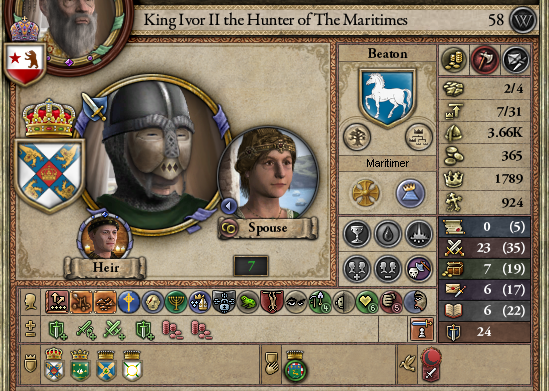

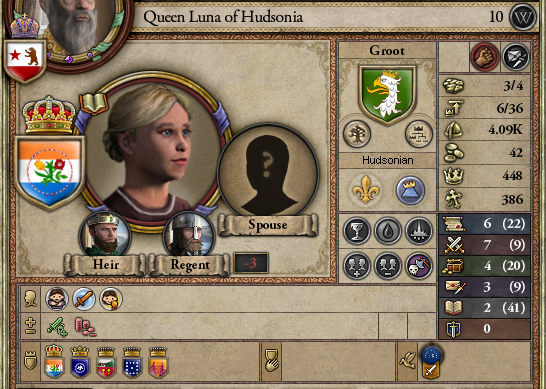
While the Christians of the Mid-East struggle to protect their people and kingdoms, the Christians of the Far East fight among themselves while the wolves gather at the door. The Anglican kingdoms of Ontario and the Maritimes have banded together to try and counter the Hudsonia-Deitscherei alliance; while Hudsonia follows the Ursiline faith and the Deitscherei are staunchly Anabaptist, they have found common ground in their shared distrust of the Anglicans of Canada. For their part, the kings of Ontario and the Maritimes have done nothing to prove this distrust unfounded, having declared several wars on both kingdoms with the goal of enforcing their faith on them.

While the Christians argue and scheme, the tribes that surround them slowly grow in strength. To the north, High Chief Kajika has managed to unite, through war and diplomacy, several local tribes under his rule. The Eeyou Itschee Coalition, as it is called, promises to be a problem for Ontario and the Maritimes if not properly managed.

To the south, the Rust Cultists of the Mid-East have united under the rule of High Chieftess Allison of Transallegheny, who has turned her gaze towards the conquest of Ohio and New York, which would put her in direct conflict with Hudsonia.
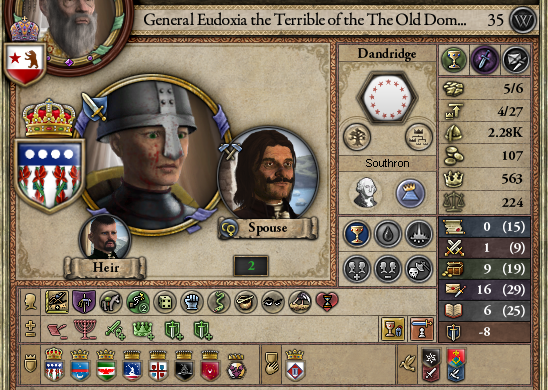
The Americanists have managed to cobble together a kingdom under General Eudoxia I; called the Old Dominion, the kingdom has designs on the Delmarva and Gotham, which has brought it into conflict with Deitscherei. Only time will tell if the Old Dominion has any staying power, beyond its current ruler.
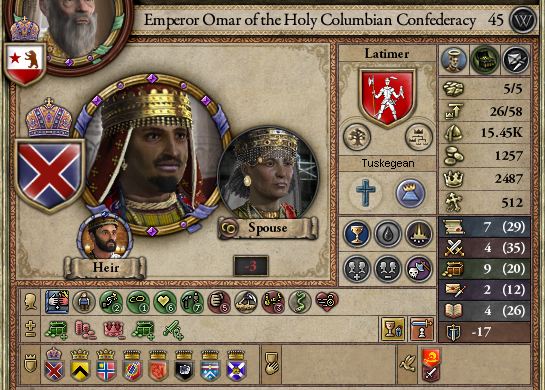

The South remains unified under the Holy Columbian Confederacy; once thought invincible, under Emperor Omar I the HCC has faced its first real threat in the form of the Viceroy. Following a successful invasion of Florida, the Viceroy has slowly, but surely, expanded into HCC lands, bringing into question if the Empire truly is bless by God.

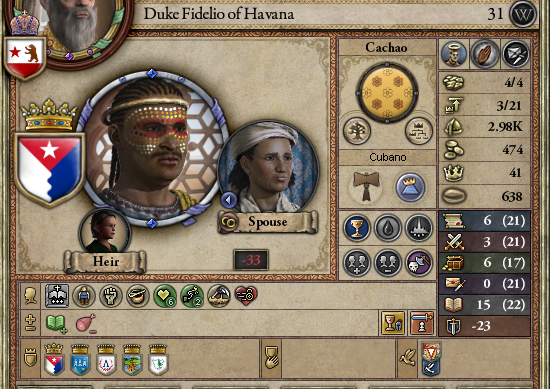
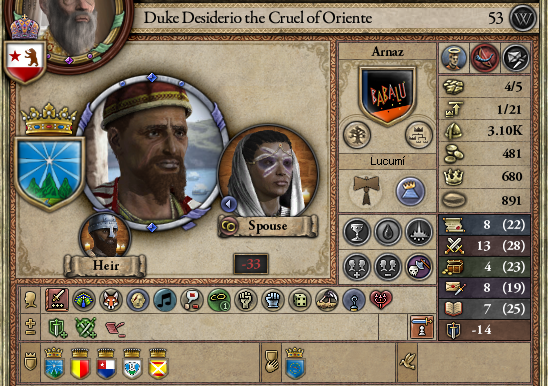
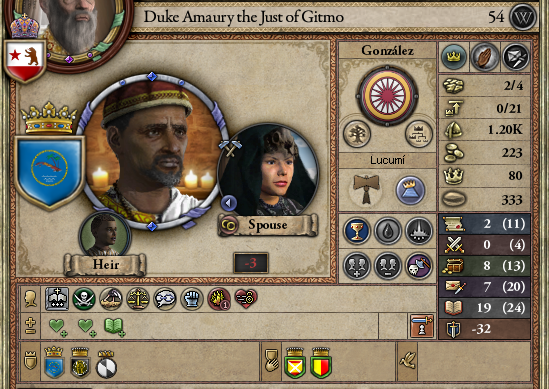
The Caribbean has still not recovered from the fall of the Empire and its people are scattered and disunited. In recent years, there has been a small hope for a return to stability in the form of Queen Ella of the West Indies; since the fall of the Empire, she has worked to forge a strong, united kingdom. Her biggest rivals in her quest for unity are the lords of Cuba, who have begun working together to prevent her further expansion on to the island.


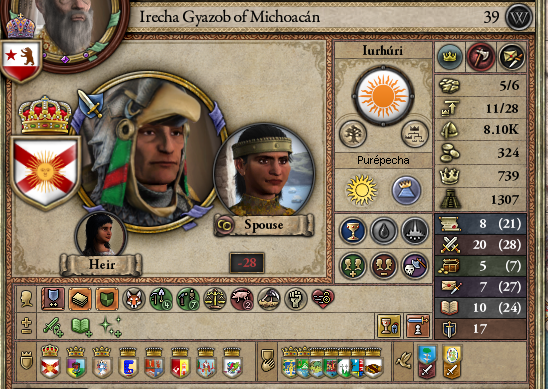


In Central America, the followers of the Saints contend with a resurgence in Mesoamerican religions; the kingdoms of Mexico and Rio Bravo are threatened on all sides by the Mesoamerican kingdoms Michoacán, Mixteca, and Yucatán. The only thing stopping their complete destruction by their hands is the fact that the three kingdoms cannot agree on which Mesoamerican religion is the true faith.



South America, a land once united by the Gracia Divinia faith is now splintered in the face of Tres Potencias, a religion native to Venuzela and popular with the nomads and tribes of the Amazon. Faced with this threat, the King of Puente Grande, the King of Zulia, and the Lord Proprietor of Cartagena have banded together to protect the few remaining Gracia Divinia realms.




While it seems like Gracia Divinia is on the decline, its rival Tres Potencias seems to be unstoppable. Popular among the tribals and nomads of South America, the only thing stopping it from completely dominating the landscape is the fact that its followers seem content to fight among each other.
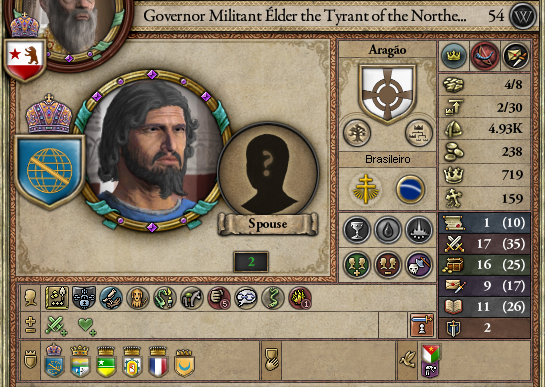

Finally, the August Empire of Brasilia continues to exert its power upon South America, though with the recent plague and the rise of the Gaúcho tribes it has not been as active in the region as it once was; the Northern Capitancy has only forced the Muslims of Guyana to swear fealty to the August Emperor. Only time will tell if this trend of weak Governor Militants will continue.
The World in 2706
